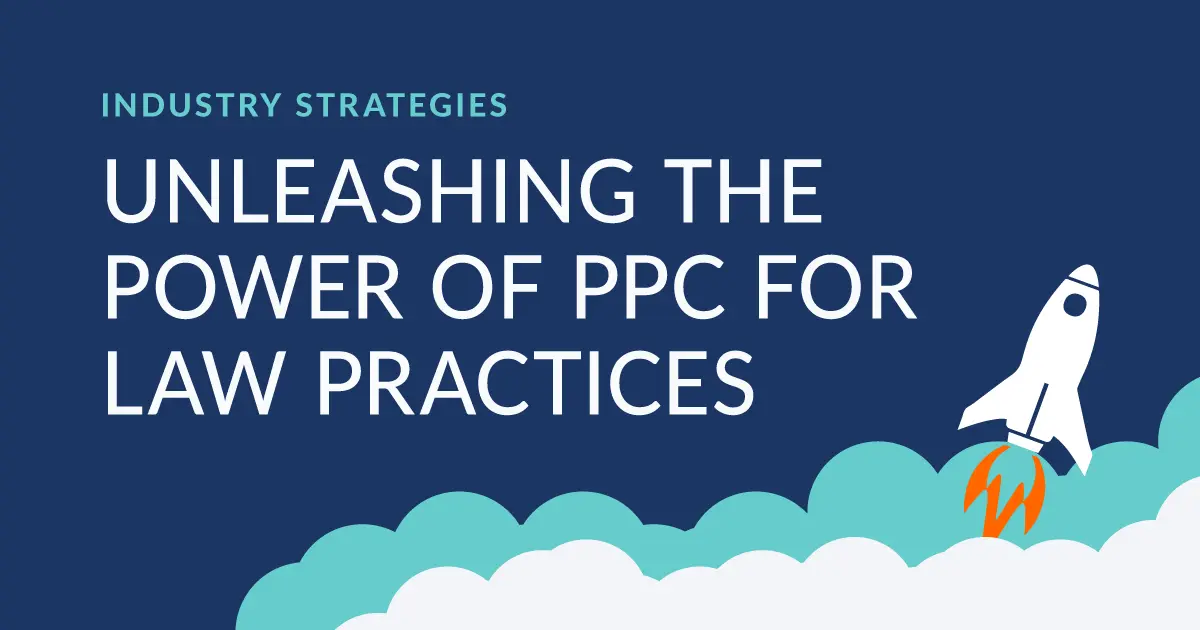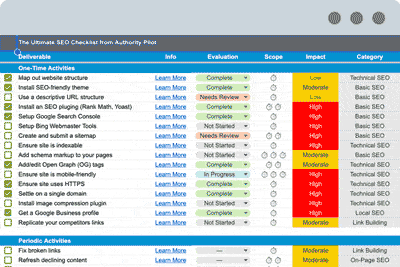
Struggling to get your law practice noticed? Pay-Per-Click (PPC) advertising is your key to stand out online. PPC for law practices places a spotlight on your firm right where potential clients are searching. But, navigating PPC can be tricky. Don’t worry, this guide will simplify it for you. We’ll show you how to create impactful campaigns and analyze their success, helping you turn clicks into clients. For a deeper dive into specialized PPC services for law practices, visit Authority Pilot’s Legal PPC page.
Setting Up a Successful PPC Campaign
Embarking on the PPC journey can be both exciting and overwhelming. To pave the way for success, there are three crucial steps:
Keyword Research
The foundation of any law firm PPC management campaign is robust keyword research. It’s about getting into the minds of your potential clients. What legal issues are they facing? What terms are they typing into search engines? Utilize tools like Google’s Keyword Planner to uncover the phrases that resonate with your audience. Remember, the goal is to select keywords that are not only relevant but also have a high potential for conversion.
Crafting Effective Ads
Once you have your keywords, it’s time to craft ads that speak directly to your audience’s needs. Your ads should be more than just informative; they should connect on a personal level. Use language that empathizes with their legal challenges and highlights your firm’s ability to help. Keep your message clear and concise, and don’t forget a compelling call-to-action (CTA) that encourages clicks.
Landing Page Optimization
The final step is where the magic happens: your landing page. This is where your potential clients land after clicking your ad. Your landing page should be a direct continuation of the ad’s promise, providing detailed information about your services and how you can assist with their legal needs. Ensure the design is clean, professional, and mobile-friendly, with a clear CTA. A well-optimized landing page not only captivates but also converts visitors into clients.
Budgeting and Bidding Strategies
Setting up your PPC campaign’s budget and bids is key to its success, but it doesn’t have to be complicated.
Determining Budget
Think of your budget as the fuel for your campaign. Start by looking at your overall marketing budget and decide how much you can dedicate to PPC. Keep in mind the value a new client brings to your firm, and set a budget that’s realistic yet allows for growth. Even with a modest budget, smart spending can bring great results.
Bidding Techniques
Bidding is all about how much you pay for a click on your ad. It’s not just about spending more than your competitors; it’s about spending smartly. Choose a bidding strategy that matches your campaign goals. If you’re after more visibility, consider cost-per-impression (CPM). For client inquiries, cost-per-click (CPC) or cost-per-acquisition (CPA) might be better. Regularly review and adjust your bids to get the best return on your investment.
Targeting the Right Audience
Finding the right audience for your PPC campaign is crucial, and it’s easier than you think with the right strategies.
Demographic targeting is like having a friendly chat with the right people. You can tailor your ads to specific groups based on factors like age, gender, or profession. For example, if your law firm specializes in family law, you might focus on middle-aged individuals. This makes sure your ads speak directly to those who need your services the most.
Geographic targeting lets you focus on areas where your potential clients are. It’s like being at the right place at the right time. Whether it’s the city where your office is or a region where your services are in high demand, this strategy ensures your ads are seen by people in locations you can serve.

Talk Strategy with a Fractional CMO
SEO. More SEO traffic with higher conversion rates.
Paid Media. Paid strategies with clear ROI.
Content. Epic content that attracts and gets shared.
The Role of A/B Testing in PPC for Law Practices
A/B testing in PPC is akin to having a conversation with your audience to see what they like best. It’s a simple yet powerful way to improve your campaigns.
Importance of A/B Testing
A/B testing is about trying different versions of your ads or landing pages to see which one your audience prefers. This method helps you understand what gets more clicks and leads, guiding you to make your campaigns more effective and engaging.
How to Conduct A/B Testing
Conducting A/B testing is easy. Just pick one thing to test, like your ad headline. Create two versions: the original and a slightly different one. Show both to your audience and see which one performs better. Remember to change only one thing at a time so you know exactly what made the difference. Regularly testing different elements keeps your campaign fresh and appealing.
Analyzing PPC Campaign Performance
Keeping an eye on your PPC campaign’s performance requires attention and care. Understanding how well your campaign is doing involves looking at Key Performance Indicators (KPIs) and focusing on Continuous Improvement.
KPIs reveal how well your campaign is performing and where there’s room for improvement. Key indicators include Click-Through Rate (CTR), Conversion Rate, Cost Per Click (CPC), and Return on Investment (ROI). CTR shows how often people click your ads, while Conversion Rate reveals how many clicks turn into clients. CPC tells you the cost of each click, and ROI measures the overall effectiveness of your campaign. By regularly monitoring these KPIs, you get a clear picture of your campaign’s health and can make informed decisions.
Continuous Improvement in PPC for law practices comes down to regularly reviewing your campaign’s performance and making adjustments. This could involve tweaking your ad copy, refining your target audience, or adjusting your bidding strategy. The key is to be proactive and responsive, ensuring your campaign remains dynamic and effective. Always be on the lookout for new trends and changes in user behavior to keep your campaign up-to-date and relevant.
Compliance and Ethical Considerations
In PPC for law practices advertising, following legal and ethical guidelines is as important as creating effective ads.
Legal advertising rules are there to make sure your ads are truthful and not misleading. Every region has its own rules, but the key is to be honest about what you offer. Ethical advertising is about respect and trust. It means not taking advantage of vulnerable people and not creating false hopes. Integrity wins the trust of your clients.
Leveraging Social Media in PPC
Using social media for your PPC campaigns opens doors to meet potential clients, connecting where they’re already engaged and active.
In terms of choosing the right social media platform for lawyers, LinkedIn is a mainstay for professional networking, not to mention being ideal for business law. Facebook and Instagram are more diverse, appropriate for sharing your firm’s stories and legal insights to a broader audience. Each platform offers unique ways to reach different types of clients.
When using social media for PPC, think about who you want to reach and what message will resonate with them. Create ads that tell your firm’s story or answer common legal questions. Use the targeting options these platforms offer to reach the right people in the right places. Keep an eye on how your ads perform and tweak them for better results over time.
The Impact of Mobile Optimization
Making your PPC campaigns mobile-friendly is a must. Nowadays, everyone’s using their phones to look things up, and that includes legal services. If your PPC ads and landing pages aren’t optimized for mobile devices, you are excluding market share. Making mobile-friendly ads means more people can see and interact with your ads comfortably, wherever they are.
Focus on speed and simplicity so that your ads load quickly and look good on small screens. Use big, readable text and easy-to-tap buttons. Keep forms short, as filling out long forms on a phone can be tough. Make sure the whole process, from clicking the ad to getting in touch, is smooth on a mobile device.
Integrating PPC with SEO Strategies
Combining PPC (Pay-Per-Click) with SEO (Search Engine Optimization) represents a dynamic duo for your law firm’s online presence. By using them in tandem, you create a comprehensive strategy that not only attracts immediate traffic but also builds a lasting, authoritative online presence. Use both to complement each other and achieve better results.
The Synergy between PPC and SEO
PPC and SEO as two sides of the same coin. While PPC for law practices helps you appear at the top of search results instantly through paid ads, SEO focuses on optimizing your website to rank organically over time. The beauty is, when used together, they reinforce each other’s strengths. PPC can provide immediate visibility and drive traffic, while SEO builds credibility and long-term online presence. Plus, the data from your PPC campaigns, like keywords that convert well, can be invaluable for your SEO efforts. It’s about creating a strategy where each supports the other to maximize your overall online impact. Learn more about how SEO can complement your PPC efforts at Authority Pilot’s Legal SEO Services.
Complementary Tactics
To make PPC and SEO work together, think about how they can complement each other. Use the insights from PPC, such as which keywords are bringing in the most clients, to inform your SEO strategy. This means optimizing your website’s content, titles, and meta descriptions with those keywords. On the other hand, SEO can help improve the quality score of your PPC ads, potentially lowering the cost per click. Also, consider using content from your well-performing SEO pages in your PPC ads. It’s like having a conversation where PPC and SEO each contribute valuable information to make the overall discussion more engaging and effective.

The Ultimate Legal SEO Checklist
Get your copy of our Ultimate Legal SEO Checklist for 2024. Unlock tips, tricks, and tools to rocket your website's search engine rankings. Whether you're a seasoned pro or just starting, this checklist is your secret weapon.
Common PPC Mistakes to Avoid
It’s easy to stumble into common pitfalls with PPC ads, especially when you’re striving to make your law firm stand out. But don’t worry, recognizing these mistakes and knowing how to avoid them is part of the journey to success.
Frequent Errors:
- Ignoring Keyword Relevance. Choosing keywords that aren’t closely related to your services can lead to irrelevant traffic.
- Neglecting Negative Keyword. Not using negative keywords can result in your ads appearing for unrelated searches.
- Overlooking Mobile Optimization. In a mobile-first world, not optimizing for mobile devices can limit your campaign’s effectiveness.
- Forgetting to Test Ad Copy. Running ads without testing different versions can lead to missed opportunities for better engagement.
- Setting and Forgetting Campaigns. Not regularly reviewing and adjusting your campaigns can lead to diminished returns over time.
- Underestimating Landing Page Impact. Directing all traffic to the same landing page, regardless of the ad’s message, can result in lower conversion rates.
Best Practices to Overcome Them:
- Focus on Relevant Keywords. Choose keywords that accurately reflect your legal services to attract more qualified leads.
- Utilize Negative Keywords. Regularly update your negative keyword list to ensure your ads only appear for relevant searches.
- Prioritize Mobile Optimization. Ensure your ads and landing pages are mobile-friendly for better engagement and conversion rates.
- Test Ad Variations. Regularly experiment with different ad copies to see what resonates best with your audience.
- Monitor and Adjust Campaigns. Keep an eye on your campaign performance and make necessary adjustments for continuous improvement.
- Tailor Landing Pages. Create specific landing pages for different ads to provide a cohesive and relevant user experience.
Advanced Techniques for Law Firm PPC Management
As you get more comfortable with PPC, there are advanced tactics that can give your law firm’s campaigns an extra edge. They add a level of sophistication to your campaigns, helping you connect with potential clients more effectively.
Remarketing strategies give a friendly nudge to people who visited your site but didn’t take action. It involves showing your ads to these potential clients again as they browse other websites. This can be really effective for law firms, as it keeps your services in mind and encourages people to revisit your site and potentially reach out for a consultation.
Using AI and automation in your PPC for law practices campaigns is like having a smart assistant. AI can analyze data to optimize when and where your ads show up, making sure they’re seen by the right people at the right time. It can also help adjust your spending for the best results. Automation takes care of repetitive tasks like scheduling ads and generating reports, freeing you up to focus on your clients and strategy.
PPC Best Practices for Law Firms
Mastering best practices for law firms is essential for boosting online visibility and attracting more clients. This section delves into the critical strategies that ensure your PPC campaigns are both effective and efficient.
- Set Clear Campaign Objectives. Identify what you want to achieve with your PPC campaign, such as increasing consultations or driving traffic to specific legal service pages.
- Conduct Thorough Keyword Research. Use tools like Google Keyword Planner to find keywords that are relevant to your legal services and have a high intent.
- Segment Your Audience. Create targeted ad groups based on different legal needs or demographic details to increase ad relevance and effectiveness.
- Write Compelling Ad Copy. Craft ads that speak directly to the user’s legal concerns with clear, actionable language and a strong call-to-action.
- Optimize Landing Pages. Ensure that the landing pages linked from your ads are relevant, persuasive, and easy to navigate, with fast load times.
- Use Smart Bidding Strategies. Implement Google Ads’ smart bidding options to optimize your bids automatically based on conversion data.
- Regularly Test and Refine Ads. Employ A/B testing on your ads and landing pages to see what works best and refine your approach based on data.
- Add Relevant Ad Extensions. Enhance your ads with extensions like sitelinks, callouts, and structured snippets to provide more information and increase click-through rates.
- Monitor and Adjust Budgets Regularly. Keep an eye on spending to ensure you are maximizing ROI without overspending on underperforming ads.
- Ensure Legal Compliance. Stay updated on advertising regulations specific to the legal industry to avoid potential issues with compliance.
- Leverage Negative Keywords. Use negative keywords to prevent your ads from appearing in irrelevant searches, saving your budget for more qualified leads.
- Focus on Mobile Optimization. Ensure all elements of your PPC campaign are optimized for mobile users, considering the increasing use of mobile devices in searches.
Case Studies: Successful PPC Campaigns in Law Practices
Exploring successful PPC for law practices benefits you in the form of wisdom from seasoned trailblazers. It provides valuable insights and inspiration for your own strategies.
Example Campaigns
Consider a family law firm that implemented a targeted PPC campaign focusing on divorce and custody issues. They used specific keywords related to these areas and created ads that directly addressed the concerns and questions of individuals facing these challenges. The campaign directed traffic to a specially designed landing page offering free initial consultations. This approach resulted in a significant increase in client inquiries and consultations, demonstrating the power of targeted messaging and strategic keyword use.
Another example is a personal injury law firm that utilized remarketing strategies in their PPC campaign. They targeted individuals who had previously visited their site but didn’t contact the firm. By displaying ads on various platforms that these potential clients visited later, the firm effectively reminded them of their services, leading to a noticeable increase in engagement and case inquiries.
Lessons Learned
- Targeted Messaging. Tailoring your ads to address specific legal issues can significantly improve engagement and conversion rates. It’s about speaking directly to the needs and concerns of your potential clients.
- Strategic Keyword Use. Carefully selected keywords that align with your specialties can drive more relevant traffic to your website, increasing the chances of attracting clients who need your specific expertise.
- Effective Landing Pages. Designing landing pages that align with the message of your ads creates a cohesive experience for potential clients, encouraging them to take action.
- Remarketing Efficiency. Remarketing can be a powerful tool to re-engage visitors who showed interest but didn’t initially reach out, helping to keep your firm top-of-mind.
- Continuous Optimization. Regularly reviewing and adjusting your campaign based on performance data is crucial for ongoing success. It helps you understand what works and refine your tactics accordingly.
Conclusion
Wrapping up our journey through PPC for law practices, we’ve seen its powerful role in connecting law firms with the right clients. It’s clear that a targeted, integrated approach combining PPC for law practices with SEO and ongoing campaign analysis leads to success. Looking ahead, the future shines bright with advancements like AI, making PPC for law practices an even more essential tool. Embracing these changes will be key to thriving online, helping firms reach and help more clients effectively.







